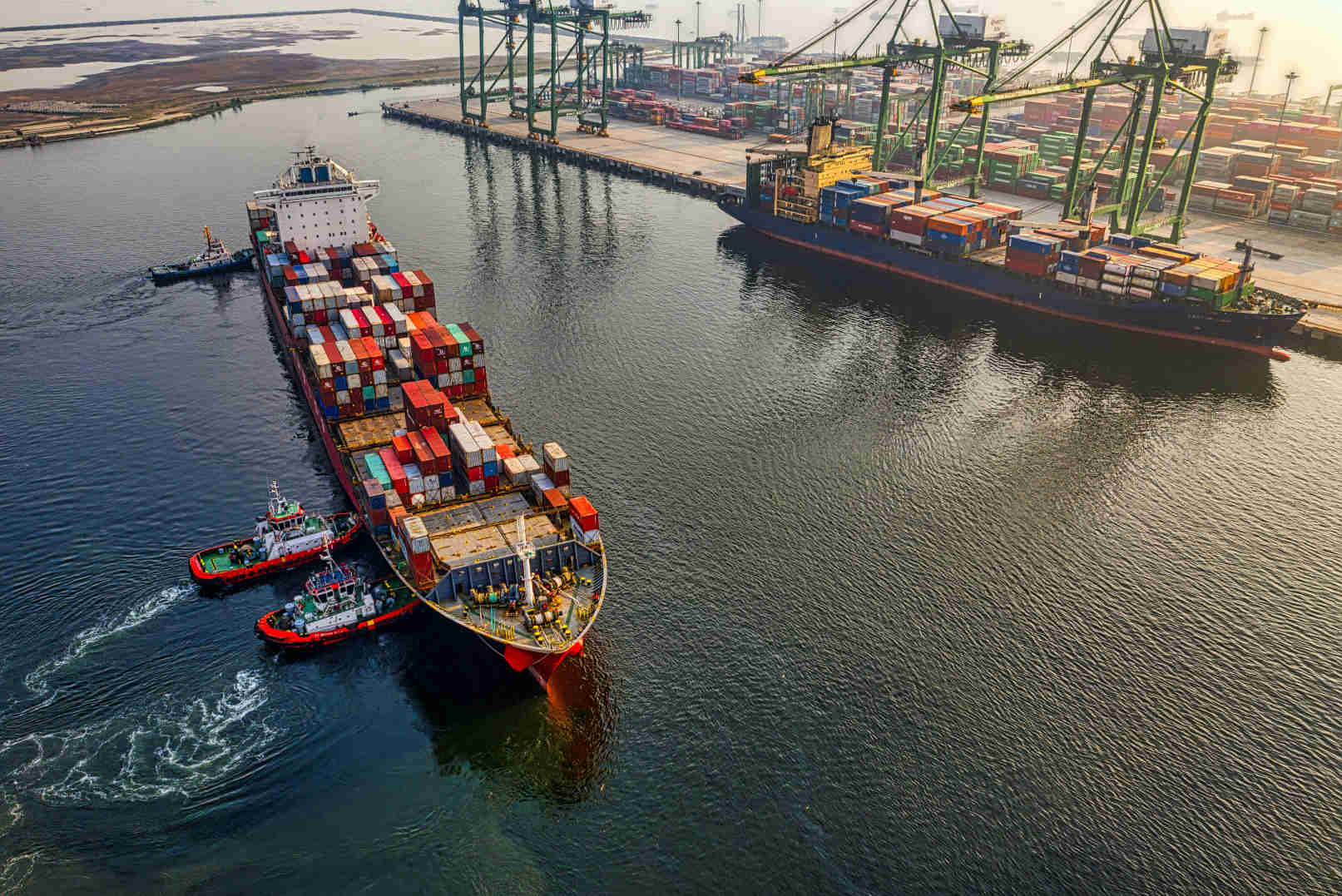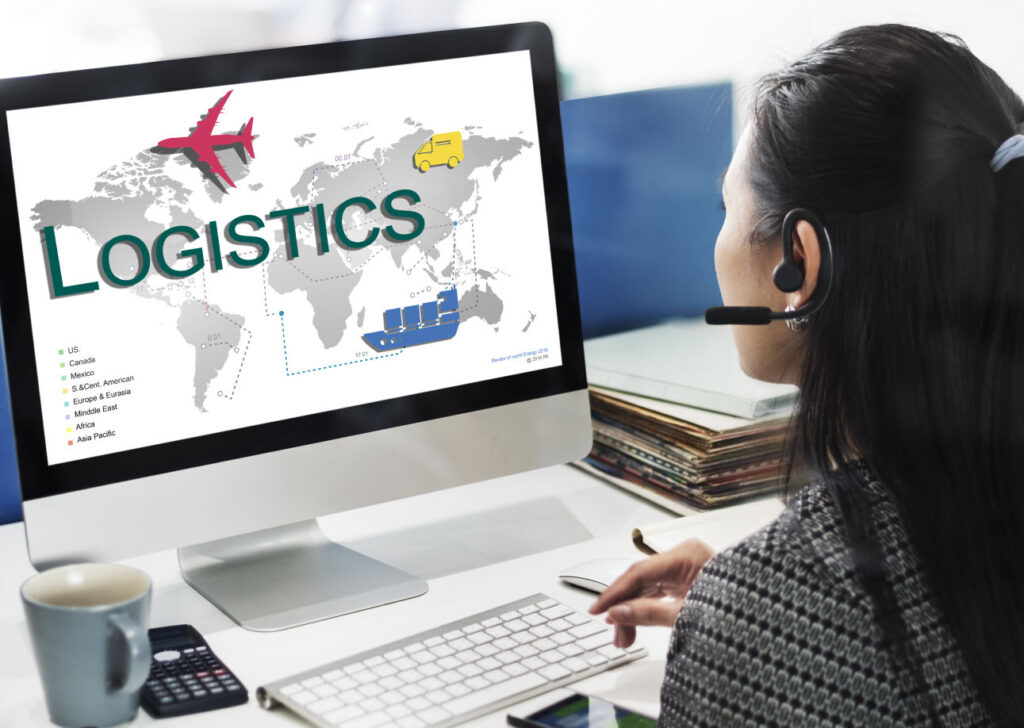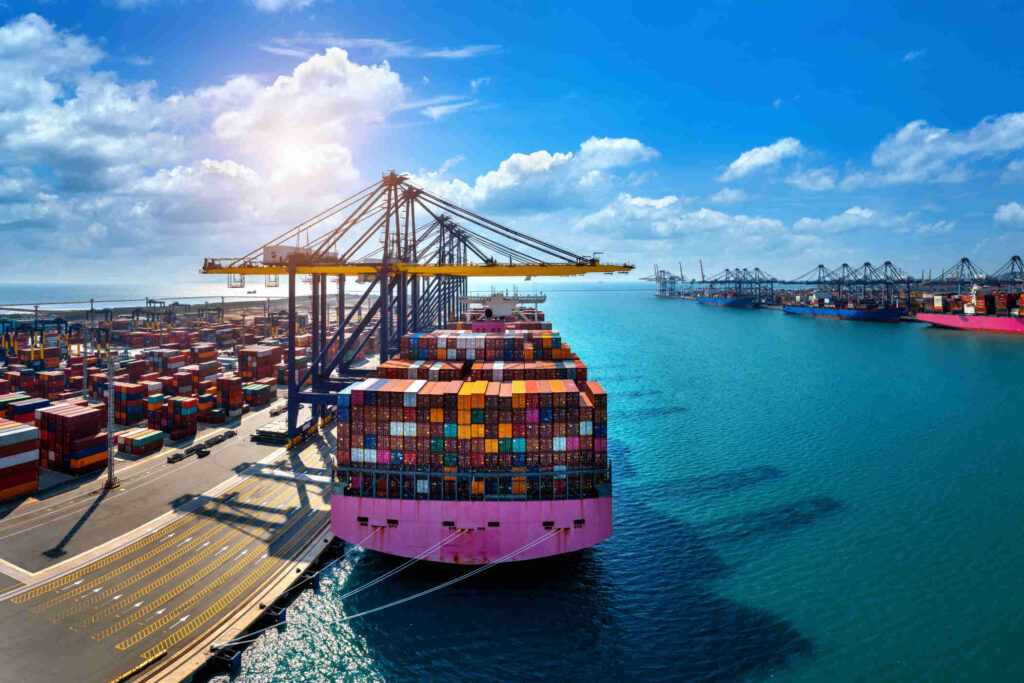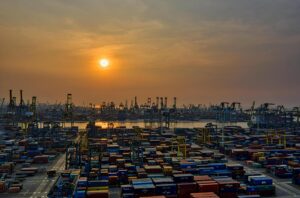
International shipping can be challenging to handle individually or as a business. This is due to the fact that there’s many steps and documentation preparation involved before the shipment can be delivered to their respective destination safely and legally.
To make the shipping process simpler, most organizations or individuals often opt for a freight forwarding company to manage their logistics. And why is that? Let’s hop on to find out why businesses rely on freight forwarder agents to manage their shipping process domestically and internationally.

What is Freight Forwarding?
First of all, what is freight forwarding? Freight forwarding involves the organization and management of shipping goods from suppliers to customers or businesses. This includes handling transportation and delivery, customs clearance, and other logistical challenges when shipping goods or, if necessary, crossing borders from one country to another. Freight forwarders streamline the supply chain and ensure smooth delivery to the final destination.
The Role of a Freight Forwarder
A freight forwarder, also known as a freight forwarding agent, is a professional who is familiar with the local tax rules as well as any other transportation laws or regulations and acts as a logistics partner, easing the steps as they have the license and the qualifications. They handle the entire shipping process on behalf of businesses. Their primary role for freight forwarders includes:
- Coordinating Transport: Choosing the best transportation modes (air, sea, rail, or road) and managing the shipment from start to finish.
- Navigating Regulations: Ensuring compliance with international trade laws, customs rules, and local tax regulations.
- Providing Expertise: Offering professional advice and leveraging their extensive industry experience to streamline logistics and resolve issues.
In short, a freight forwarder is the link between suppliers, shippers, and customers, ensuring the shipment process runs smoothly to its final destination.
Key Services Provided by Freight Forwarders
Here are the common main services that are offered by freight forwarder agents:
- Handling of Transportation: A freight forwarder will recommend the best transport method for the shipment and manage the entire route.
- Customs Clearance: All documentation and procedures related to import/export laws and customs clearance will be handles by the freight forwarder.
- Shipping Documentation: They prepare and ensure the accuracy of bills of lading, commercial invoices, and permits.
- Storage of Goods: Most freight forwarders will provide secure warehousing service facilities to store your goods during transit.
- Cargo Insurance for Transporting Goods: Offering marine cargo insurance to cover loss, theft, or damage during transit.
What is the Difference Between a Freight Forwarder and a Shipping Company?
Although freight forwarders and shipping companies are both involved in the logistics industry, they serve different purposes:
- Freight Forwarder: A freight forwarder acts as an intermediary. They don’t own transportation assets but instead coordinate logistics and handle necessary documentation, customs clearance, insurance and risk management.
- Shipping Company: A shipping company owns and operates the transport vehicles such as ships, trucks, or planes. Their primary focus is moving goods from one location to another.
Generally, freight forwarders provide a broader range of logistics services, offering end-to-end logistics solutions, while shipping companies focus solely on the physical transport of goods.
Who Should Use a Freight Forwarder?
Freight forwarding is particularly valuable for:
- Importers and Exporters: Businesses navigating international trade.
- E-commerce Retailers: Online stores shipping globally.
- Manufacturers: Companies moving raw materials or finished products.
- Small and Medium Enterprises (SMEs): Businesses needing cost-effective logistics solutions like LCL services.
Advantages of Using a Freight Forwarder for Businesses
Leveraging freight forwarding shipping services offers several benefits for businesses:
1. Expertise in Global Shipping Regulations
Freight forwarders are knowledgeable about international shipping laws and regulations, ensuring compliance, minimizing the risk of fines and delays, as well as avoiding legal issues.
2. Cost-Effective Shipping Solutions
Due to their established industry connections with carriers, freight forwarders can negotiate better rates and optimize shipping costs, ultimately saving businesses money in the long run.
3. Comprehensive Document Management
Freight forwarder agents manage all necessary documentation for shipping, from bills of lading to customs paperwork, reducing the risk of errors and ensuring accuracy and compliance.
4. Access to Global Networks
Freight forwarders often have extensive connections and networks with carriers, agents, and warehouses worldwide that allow them to offer services across various regions efficiently.
5. Risk Management and Insurance
Freight forwarding agent assess potential risks during transit and will recommend and provide cargo insurance to protect shipments against loss or damage during transit.
6. Warehousing and Distribution Services
Many freight forwarders offer secure warehousing facilities for secure storage to accommodate goods before delivery.
7. Streamlined Supply Chain Operations
By integrating logistics processes, freight forwarders ensure timely and coordinated deliveries.
8. Flexibility for Businesses of All Sizes
Freight forwarding services can be tailored to meet the needs of small businesses as well as large corporations.
9. Better Visibility and Tracking
With tracking tools, freight forwarders provide real-time updates, giving businesses control to monitor their shipments in real-time
10. Time Saving
Outsourcing logistics to a freight forwarder frees up time for businesses to focus on their core activities.
For most businesses, handling international shipping alone is challenging due to complex documentation, regulations, and logistics requirements. Freight forwarders simplify this process by managing the entire shipping journey.
Types of Freight Services by an International Freight Forwarder
International freight forwarders offer a variety of services to facilitate the movement of goods across borders. The primary types of freight services include:
1. Air Freight Forwarding
Air freight forwarders manage all logistics associated with air transport, including customs clearance, packing, and insurance. Air freight service prioritizes quick transit times and reliable delivery schedules, which often come at a higher cost compared to other methods.
2. Sea Freight Forwarding
Sea freight is a cost-effective option that is suitable for large volumes of goods that are less time-sensitive. Sea freight forwarders coordinate all logistics related to ocean transport, including container loading, customs clearance, and documentation. They handle both Full Container Load (FCL) and Less than Container Load (LCL) shipments.
3. Land Freight
Land freight forwarders manage the logistics of transporting goods via road and rail. This includes route planning, trucking selection, and customs clearance for domestic and cross-border shipments within the same continent. Land freight is often used for regional distribution and intermodal transport solutions to locations that may not be accessible by air or sea.
4. Rail Freight
Rail freight forwarders manage all logistics associated with transporting goods by train, ensuring a reliable and cost-effective solution for moving large volumes of cargo over long distances. They handle various aspects, including customs clearance, documentation, and coordination with rail operators.
Each freight type has its own logistics advantages, and the choice often depends on the specific requirements of the shipment. Learn more here for a deeper insight into the types of freight transportation.

Steps Involved in Freight Forwarding
The freight forwarding process involves several stages. Here are the important steps involved:
1. Agreement of Order
Both the supplier and importer will come to an agreement for the trade.
2. Origin Handling
Freight forwarders arrange shipment of goods to the seaport or airport.
3. Customs Clearance for Export
The freight forwarder will then handle all of the required paperwork for the export permit and other relevant matters involving the laws and regulations between the supplier and receiver. Check out the detailed guide on the export permit in Malaysia here.
4. Transportation Handling
The goods will be transported by air shipment or sea shipment from the origin to the destination.
5. Customs Clearance for Import
Once the goods arrive at the destination port, once again the freight forwarder will handle the necessary paperwork involved for the import customs clearance for the import permit. For more details on how import permits work in Malaysia, check out the detailed guide to SIRIM import permit here.
6. Final Destination Handling
After the goods have been approved, the freight forwarder will ensure the goods will be transported towards the destination.
Cost Factors in Freight Forwarding
The overall cost of freight forwarding in Malaysia depends on several aspects such as:
- Total Distance: Longer routes cost more.
- Weight, Size, and Volume of Goods: The overall weight and size of the goods will impact the total shipping cost. Heavier goods incur higher costs.
- Taxes and Duties for Customs: Customs fees add to the total cost of freight forwarding.
- Transportation Method: Generally, air freight is costlier than sea freight
Choosing the Right Freight Forwarder
To choose the best freight forwarder, business should look for:
- Check the Reviews: Look for customer feedback and reputation.
- Evaluate the Network: Ensure the freight forwarder has strong connections with global agents and whether they support routes to the destination you’re looking for.
- Explore Freight Services: Check if the freight forwarder company offers services that match your needs.
- Level of Experience: Opt for an experienced freight forwarder for better reliability.
International Freight Forwarding Solutions by Global Track Lines
Freight forwarders play a pivotal role in global trade by simplifying logistics and ensuring the smooth transport of goods locally and globally. By partnering with reliable freight forwarder, businesses can save time, reduce costs, and focus on growth.
Global Track Lines is a trusted international freight forwarder in Malaysia offering various logistics services, including air and sea freight services, warehousing, and comprehensive logistics solutions. Contact us today to learn more about how we can support your business’s shipping needs.




